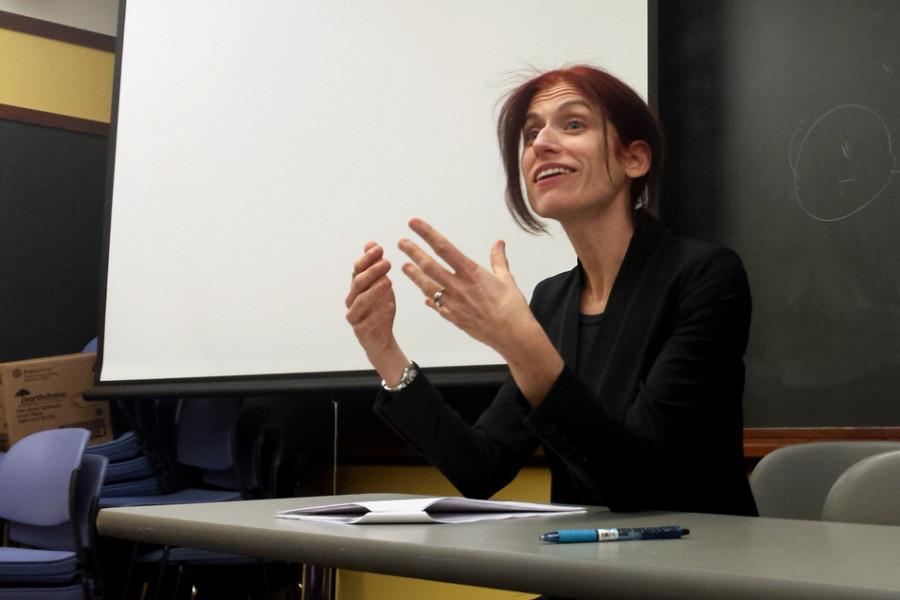Northwestern professor discusses the law, definition of sexual assault
Sophie Mann/The Daily Northwestern
Law professor Deborah Tuerkheimer discusses legal proceedings in sexual abuse cases. Tuerkheimer’s visit was part of this week’s Take Back The Night programming.
April 23, 2015
Rape is defined as forced, non-consensual sex, yet in some cases so much emphasis is given to the “force” aspect of the crime that the significance of consent is diminished, Northwestern Law Prof. Deborah Tuerkheimer said on Wednesday.
Tuerkheimer spoke to a group of about 20 students about the relationship between sexual assault and the law. The event was hosted by Take Back the Night, an organization that has put together a week of programming to raise awareness of sexual assault.
The professor spoke about the injustices that can occur when cases of sexual assault is brought to court. She spoke from her experience in handling domestic violence and child abuse cases as an assistant district attorney in the New York County District Attorney’s Office for five years.
In some court cases, Tuerkheimer said, attackers aren’t charged with rape when the details of the incidents surface. Defense attorneys can argue that victims weren’t forced to have intercourse if they were asleep or intoxicated, or if someone who wasn’t the attacker drugged them.
“That’s historically been the way that the law has responded to rape,” Tuerkheimer told The Daily. “It’s still true in a majority of states and the model that governs rape still requires force.”
Tuerkheimer, a graduate of Yale Law School, said though most cases of sexual assault in which the aggressor was a stranger to the victim are prosecuted, cases where the aggressor and victim know each other often go unpunished. These, she said, are the most common cases.
She also explained that the defense will sometimes bring up a victim’s sexual history to find patterns that can be used to hurt the prosecution’s case.
Medill freshman Elena Sucharetza, who attended the event, said it was shocking to hear that a victim’s sexual history can be used to justify an attacker’s actions.
“It was most sobering to hear that women’s sexual history is oftentimes brought into the legal realm,” Sucharetza said. “I find that kind of outstanding, that we consider women to be of a certain purity level to be considered ‘rapeable,’ which is really disturbing.”
Tuerkheimer said she remains optimistic, however, that soon these legal aspects surrounding sexual abuse will change. She said the idea that consent should be clear is gaining more traction in conversations about sex on college campuses — that the thinking has changed from “no means no” to “yes means yes.”
“I think we’re in the midst of change. I think that our rape law is in need of modernization and that is happening,” she told The Daily. “I think the path to reform is not always smooth but in my mind, we’re very much moving in the right direction.”
Medill freshman Hannah Johnson, one of the organizers of the event, said that Take Back The Night wanted to bring “some aspect of the law” to this week’s sexual-assault awareness programming.
“There’s not a lot of knowledge of it amongst students, especially the divide between campus and city or state law,” the Medill freshman said. “So we really wanted to bring someone who had an expertise in this because its something that’s really unknown and there is a lot of gray area, like we talked about tonight.”
Email: [email protected]
Twitter: @marianaa_alfaro


